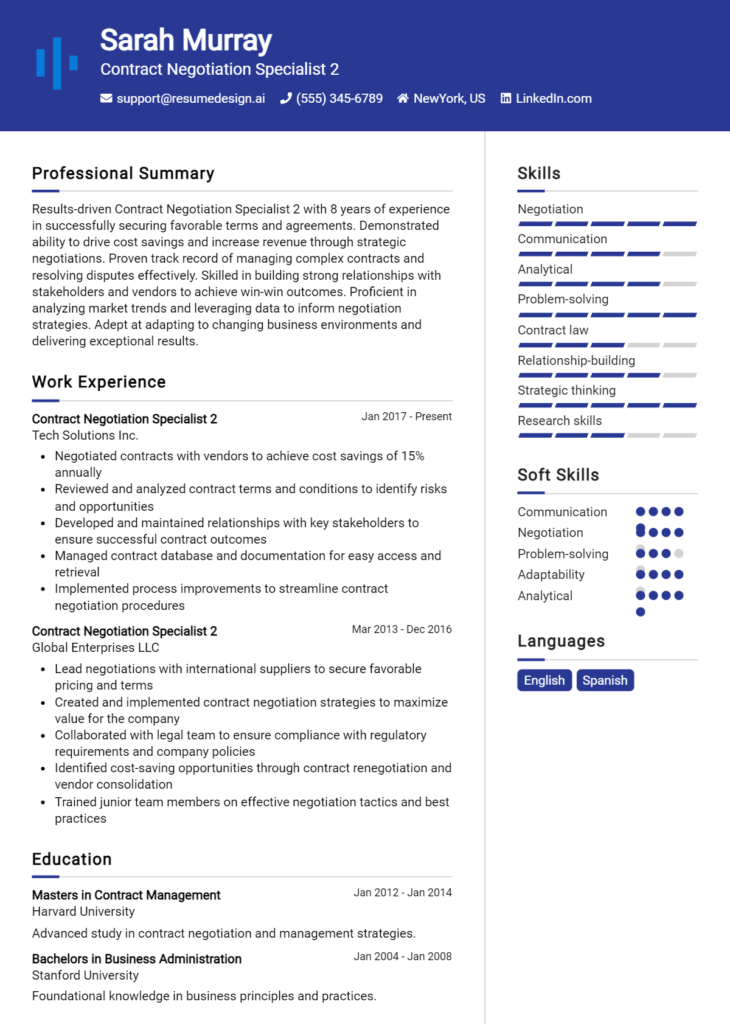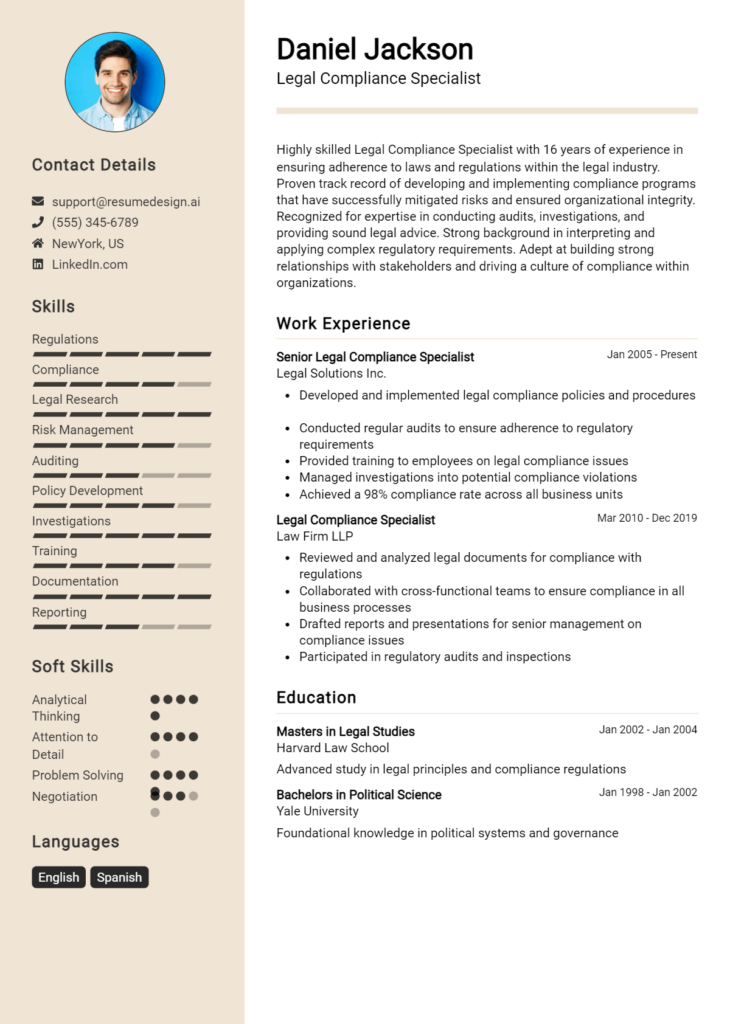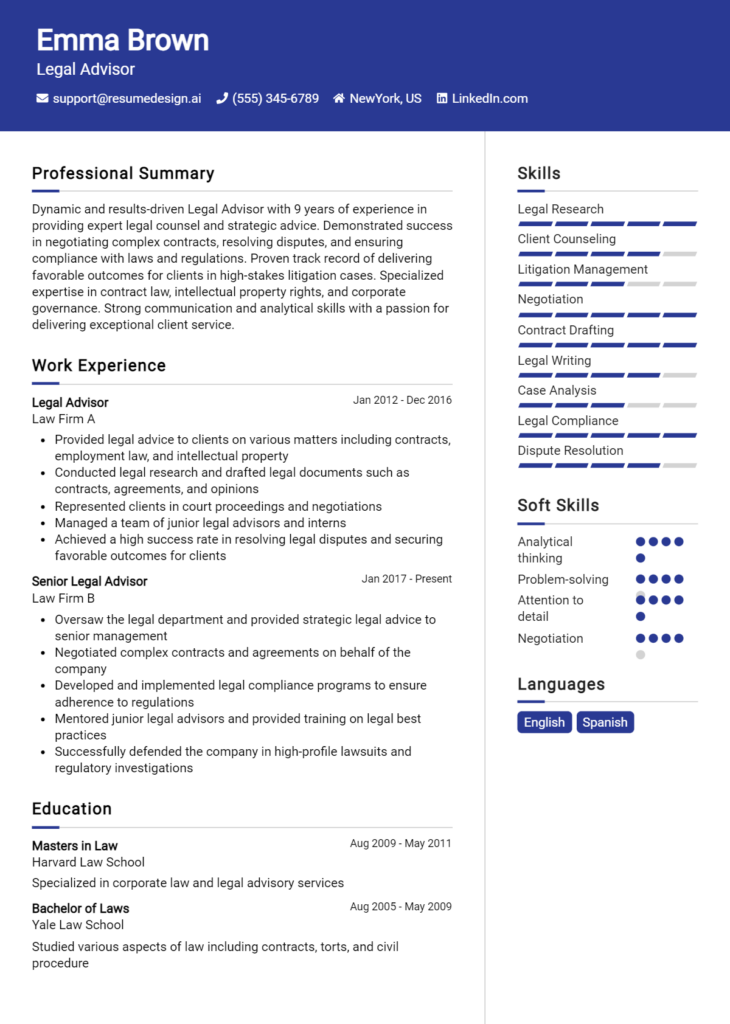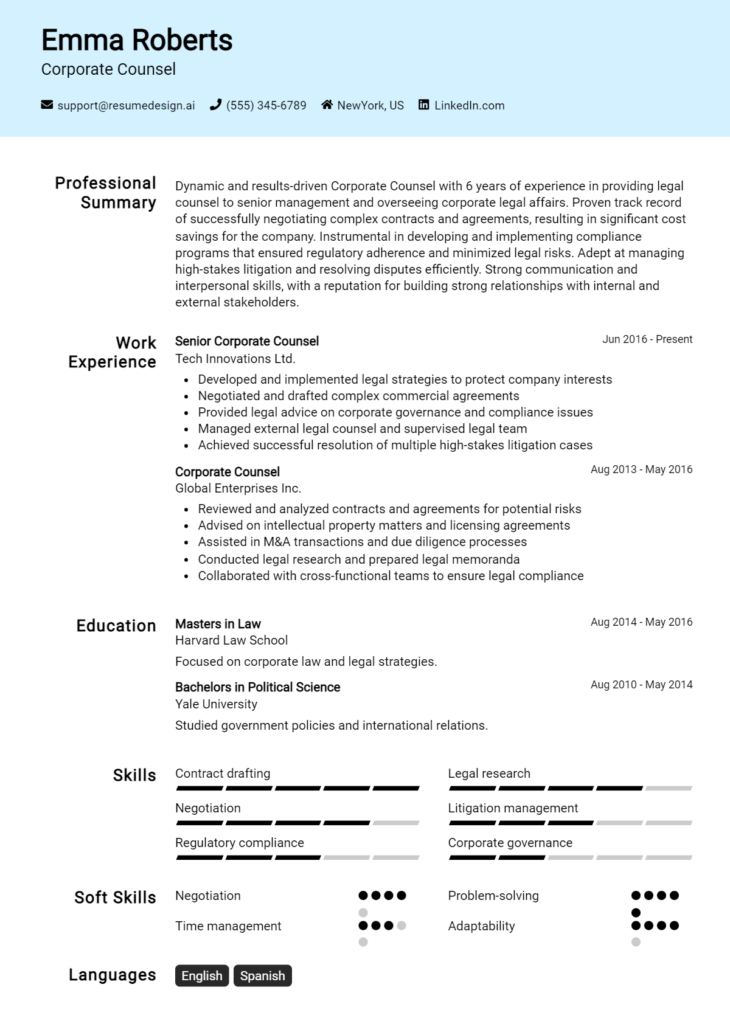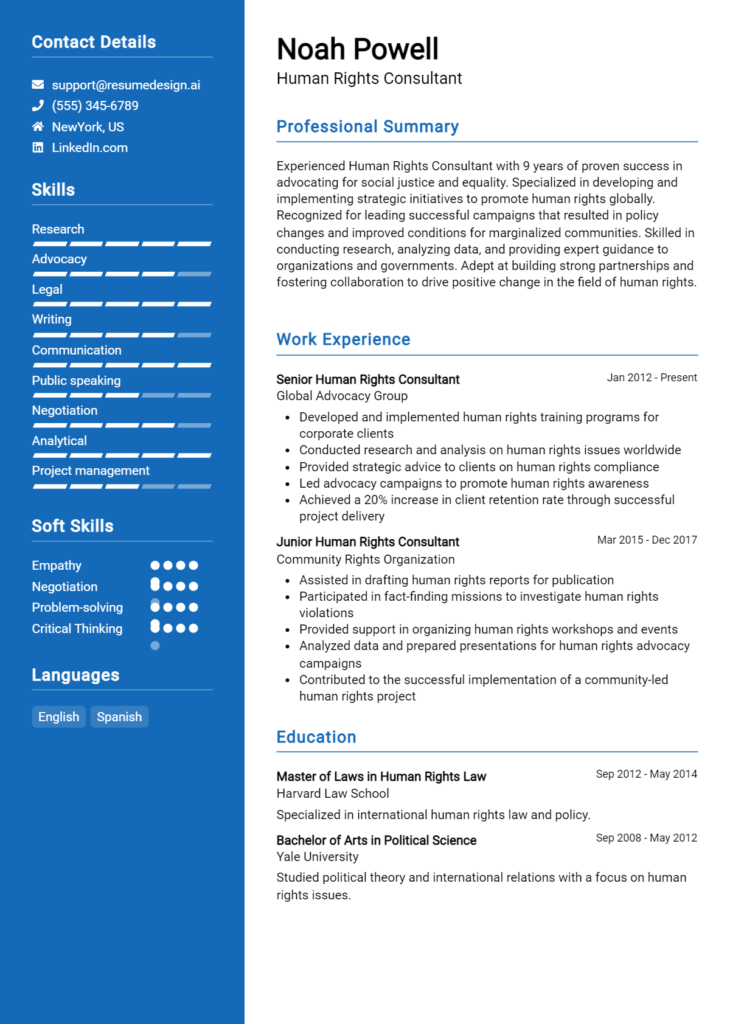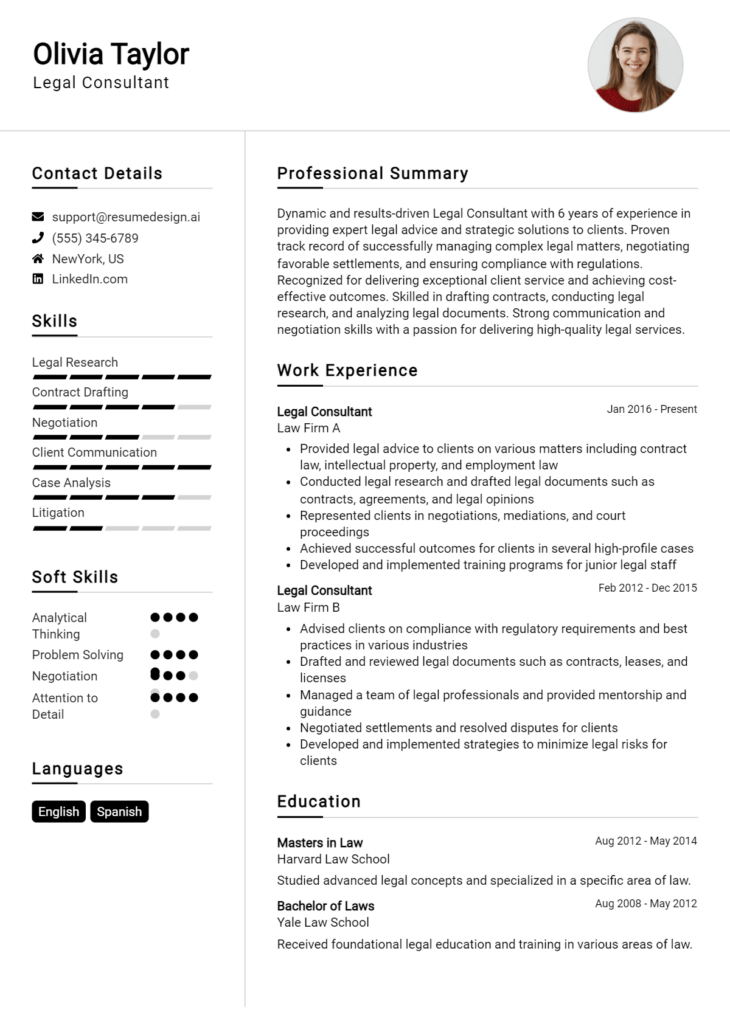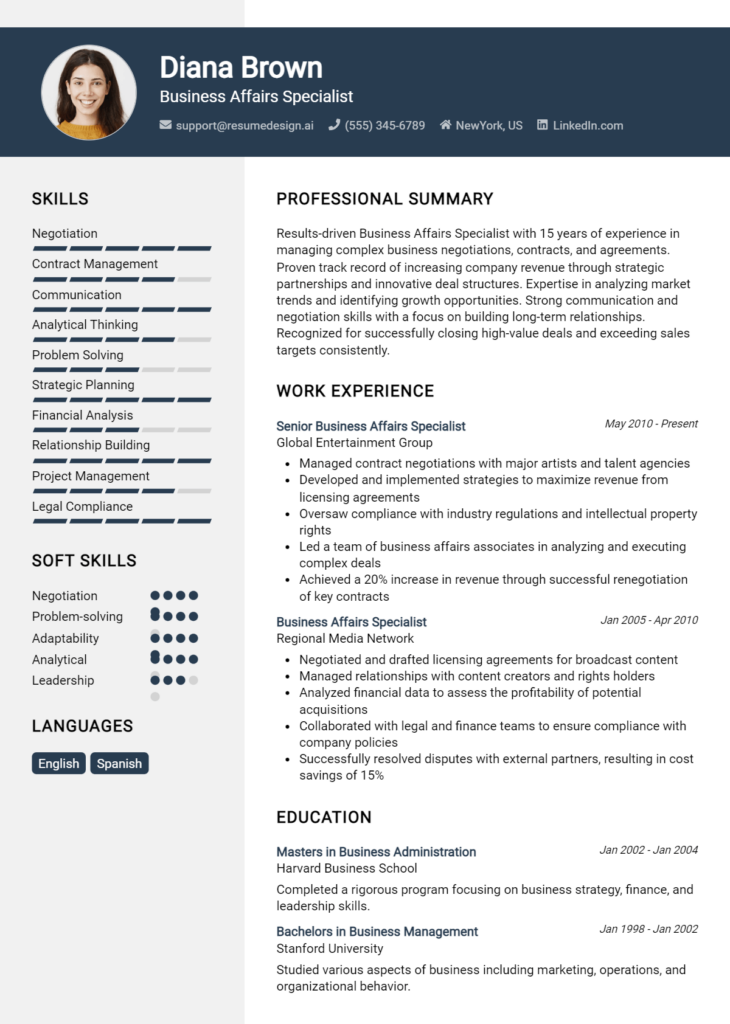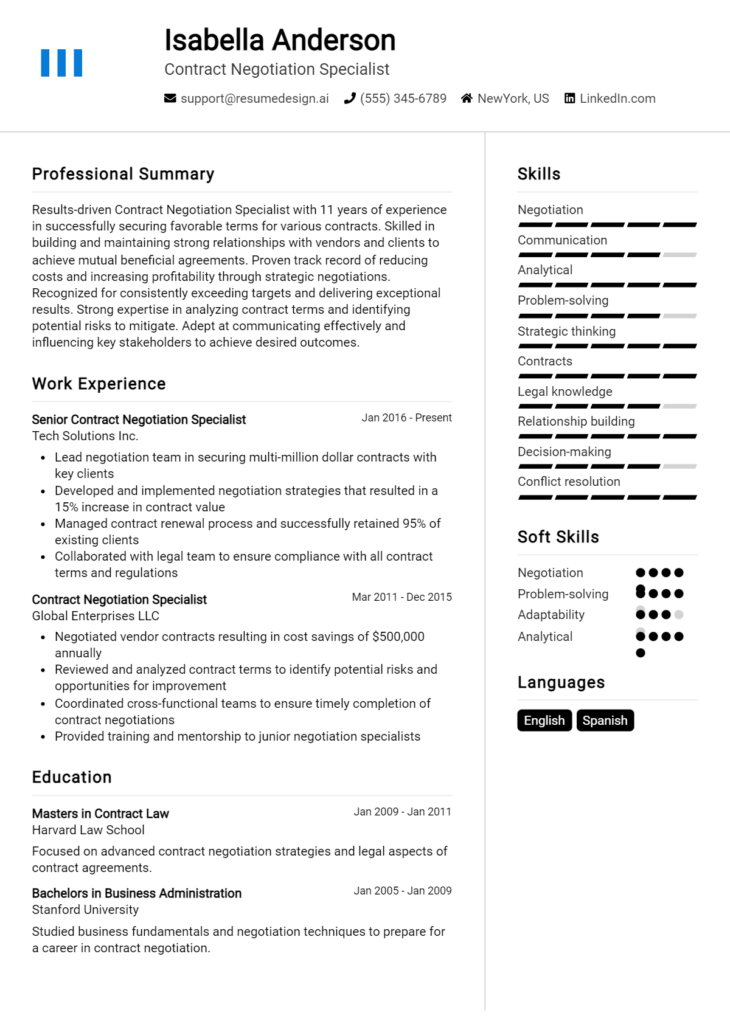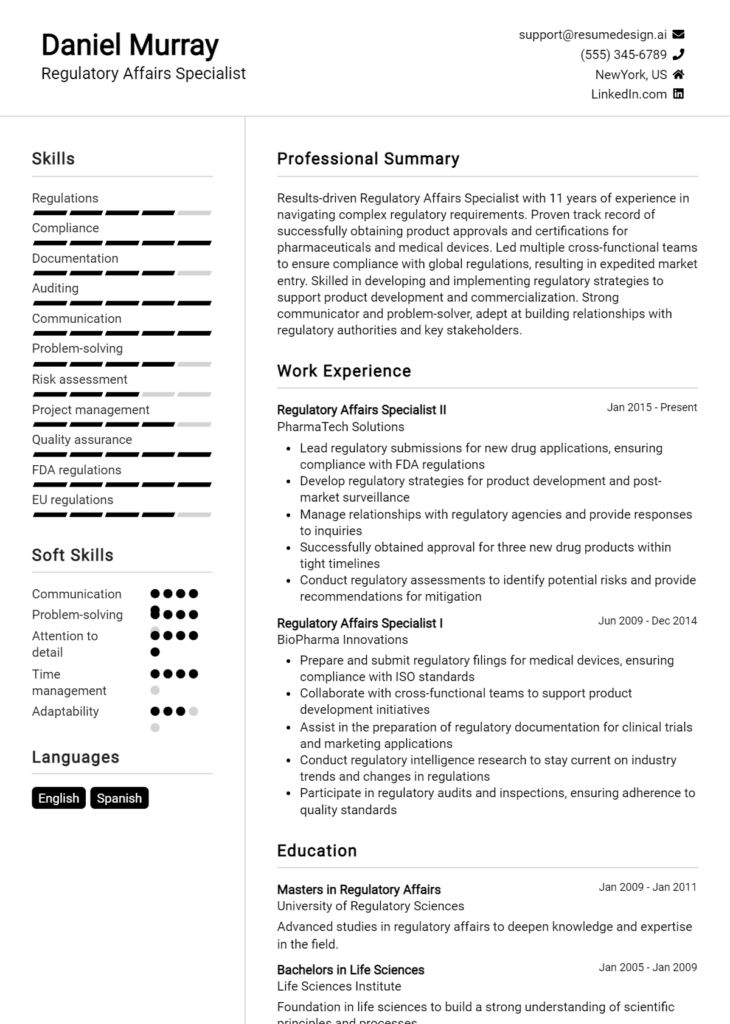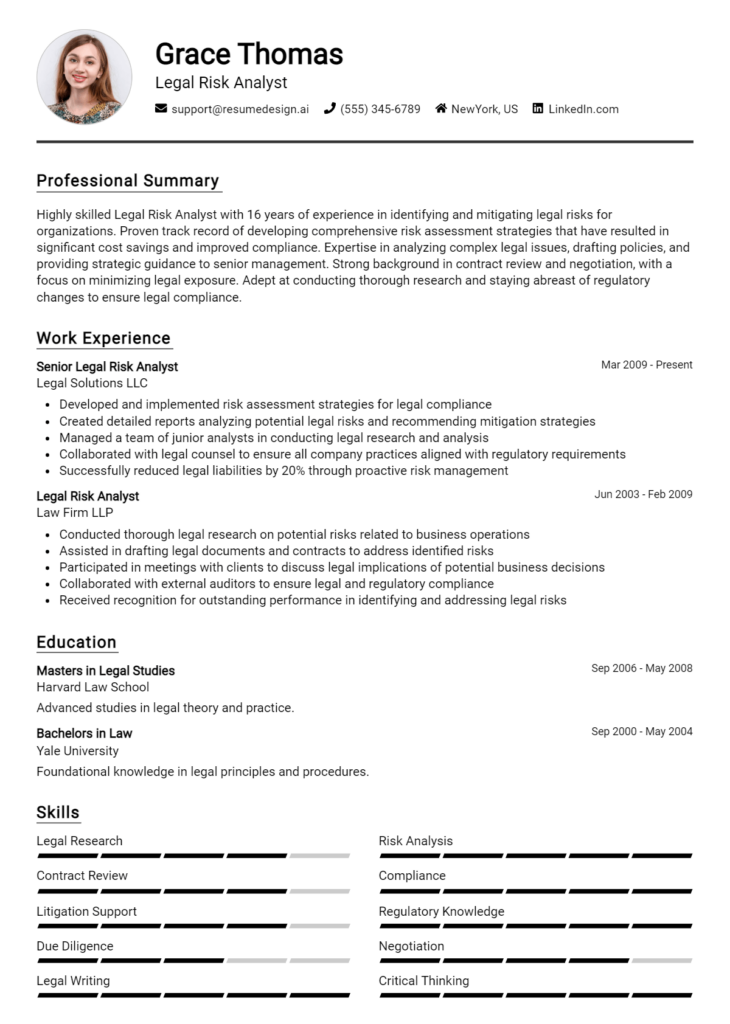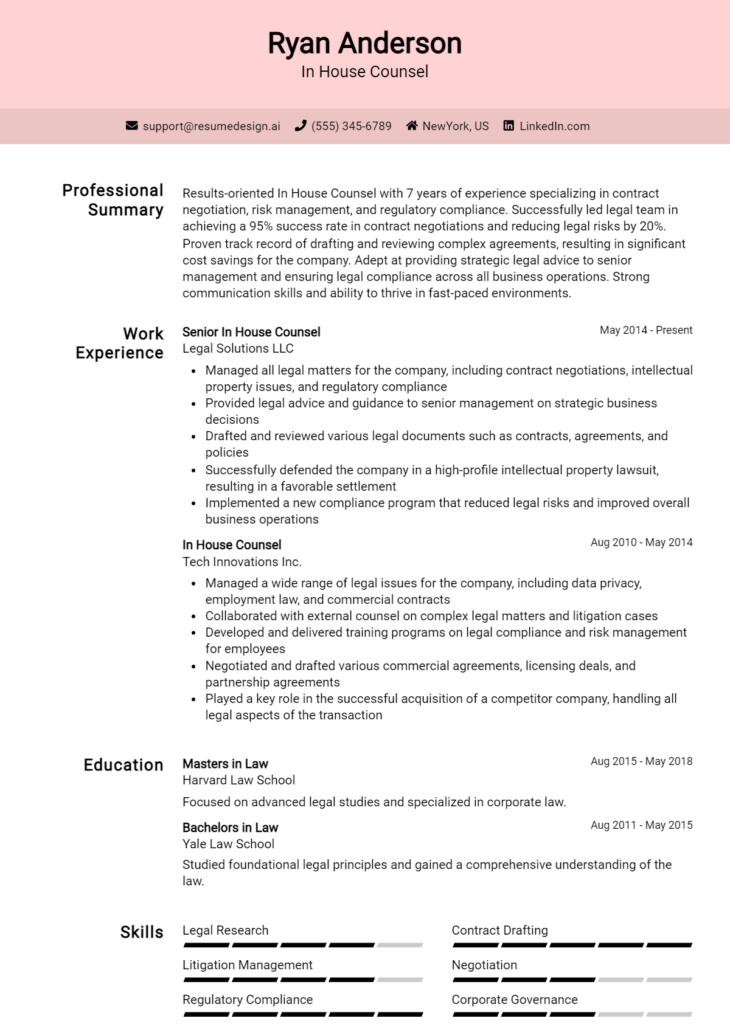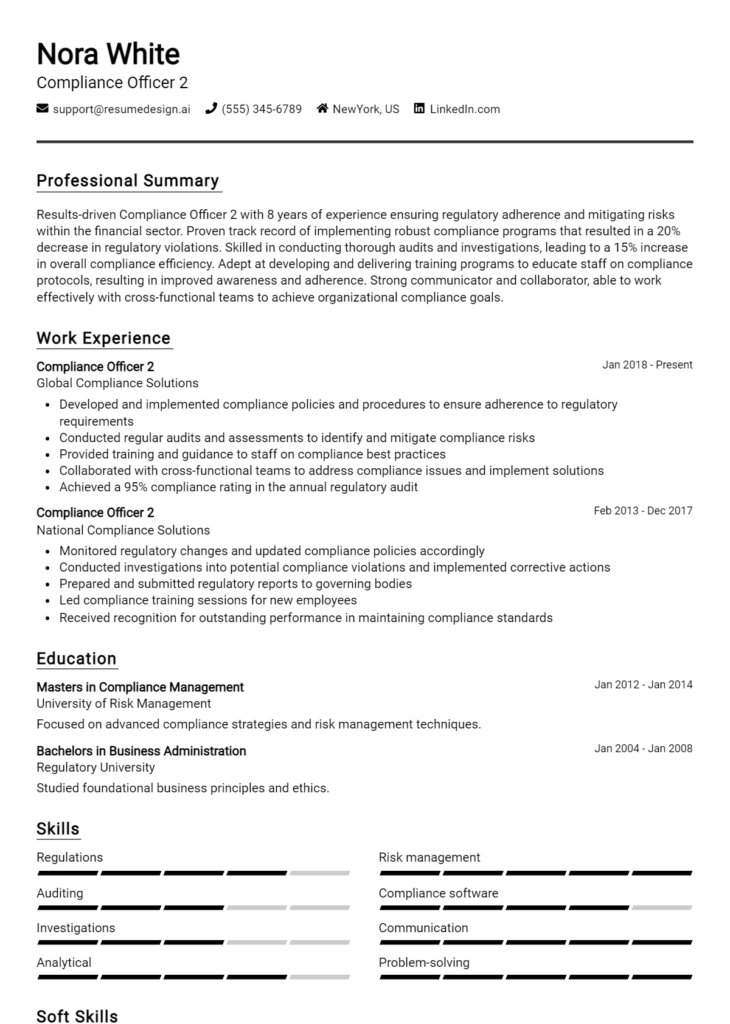Data Protection Officer Core Responsibilities
A Data Protection Officer (DPO) plays a crucial role in ensuring compliance with data protection laws while safeguarding the organization's data integrity. Key responsibilities include developing data protection policies, conducting risk assessments, and serving as the liaison between various departments, such as IT, legal, and HR. Essential skills encompass technical expertise in data management systems, operational oversight, and strong problem-solving capabilities. These competencies not only uphold regulatory standards but also align with the organization's strategic goals. A well-structured resume can effectively highlight these qualifications, showcasing the DPO's impact on fostering a culture of data protection.
Common Responsibilities Listed on Data Protection Officer Resume
- Developing and implementing data protection policies and procedures.
- Conducting regular data protection impact assessments.
- Monitoring compliance with data protection regulations and reporting findings.
- Providing training and education on data protection to staff.
- Acting as the main point of contact for data subjects and regulatory authorities.
- Managing data breaches and coordinating incident response efforts.
- Collaborating with IT to ensure data security measures are in place.
- Reviewing data processing activities and ensuring they align with legal requirements.
- Maintaining records of data processing activities.
- Advising on data protection impact assessments for new projects.
- Staying updated on changes in data protection laws and best practices.
- Developing strategies for data retention and disposal.
High-Level Resume Tips for Data Protection Officer Professionals
In today's increasingly digital world, the role of a Data Protection Officer (DPO) has never been more critical. As guardians of privacy and compliance, DPO professionals must demonstrate their expertise through a well-crafted resume that stands out in a competitive landscape. A resume is often the first impression a candidate makes on a potential employer, and it must effectively reflect both their skills and significant achievements in data protection and privacy regulations. This guide will provide practical and actionable resume tips specifically tailored for Data Protection Officer professionals, ensuring your application resonates with hiring managers and showcases your qualifications.
Top Resume Tips for Data Protection Officer Professionals
- Tailor your resume to the specific job description by incorporating keywords and phrases that align with the employer's requirements.
- Highlight relevant experience in data protection, compliance, and risk management, showcasing your understanding of GDPR and other regulatory frameworks.
- Quantify your achievements where possible, such as reducing data breaches by a specific percentage or increasing compliance rates among staff.
- Emphasize your industry-specific skills, including knowledge of data encryption, incident response planning, and privacy impact assessments.
- Include certifications related to data protection, such as CIPP/E or CIPM, to demonstrate your commitment to professional development.
- Showcase your ability to work cross-functionally with IT, legal, and HR departments, illustrating your collaborative skills in implementing data protection measures.
- Incorporate examples of how you’ve led training sessions or workshops on data protection policies, emphasizing your expertise in educating others.
- Use a clean, professional layout that makes your resume easy to read, ensuring key information stands out to recruiters.
- Keep your resume concise, ideally one to two pages, focusing on the most relevant experiences and qualifications that align with the DPO role.
By implementing these tips, you can significantly increase your chances of landing a job in the Data Protection Officer field. A strong resume not only highlights your qualifications but also demonstrates your commitment to data protection, making you a valuable asset to any organization seeking to safeguard sensitive information.
Why Resume Headlines & Titles are Important for Data Protection Officer
In the competitive field of data protection, a well-crafted resume headline can serve as a powerful tool for candidates aiming to stand out to hiring managers. The role of a Data Protection Officer (DPO) is critical in safeguarding sensitive information and ensuring compliance with data protection laws. A strong resume headline or title can immediately capture the attention of recruiters and succinctly summarize a candidate's key qualifications in a single impactful phrase. It should be concise, relevant, and directly related to the job being applied for, effectively setting the tone for the rest of the resume and encouraging further review.
Best Practices for Crafting Resume Headlines for Data Protection Officer
- Keep it concise: Aim for a headline that is 10-15 words long.
- Make it role-specific: Clearly indicate your position as a Data Protection Officer.
- Highlight key qualifications: Include relevant skills or certifications that set you apart.
- Use action-oriented language: Choose strong verbs that convey proactivity and expertise.
- Incorporate industry keywords: Utilize terminology that is relevant to data protection and compliance.
- Be authentic: Ensure that the headline honestly reflects your experience and capabilities.
- Avoid jargon: Use clear language that is easily understood by hiring managers.
- Tailor to each application: Customize your headline to match the specific job description.
Example Resume Headlines for Data Protection Officer
Strong Resume Headlines
Experienced Data Protection Officer Specializing in GDPR Compliance & Risk Management
Certified Data Privacy Professional with 5+ Years in Regulatory Compliance
Results-Driven Data Protection Officer Focused on Data Security Strategies and Training
Proven Leader in Data Protection and Privacy Management with a Track Record of Successful Audits
Weak Resume Headlines
Data Protection Officer Looking for Opportunities
Experienced Professional in Data Management
The strong headlines are effective because they provide a clear and specific overview of the candidate's expertise and focus, showcasing relevant skills and experiences that are directly applicable to the role of a Data Protection Officer. In contrast, the weak headlines fail to impress as they are vague and generic, lacking the specificity needed to convey the candidate's unique qualifications. By avoiding ambiguity and emphasizing relevant achievements, strong headlines create a compelling first impression that encourages hiring managers to delve deeper into the resume.
Writing an Exceptional Data Protection Officer Resume Summary
A well-crafted resume summary is crucial for a Data Protection Officer (DPO) as it serves as the first impression a hiring manager receives. This brief yet powerful statement can quickly capture attention by highlighting key skills, relevant experience, and significant accomplishments that align with the job role. A strong summary is concise and impactful, making it easier for employers to recognize a candidate's qualifications at a glance. Tailoring the summary to the specific job description ensures that the candidate stands out amidst a sea of applicants, demonstrating both interest and suitability for the position.
Best Practices for Writing a Data Protection Officer Resume Summary
- Quantify Achievements: Use numbers and metrics to demonstrate your impact, such as percentage improvements in compliance rates or successful audits.
- Focus on Relevant Skills: Highlight specific skills required for the DPO role, such as data privacy regulations, risk management, and compliance strategies.
- Tailor the Summary: Customize your summary for each job application to reflect the unique requirements and responsibilities of the position.
- Use Strong Action Verbs: Start sentences with dynamic verbs to convey your contributions effectively and engage the reader.
- Keep It Concise: Aim for 3-5 sentences that deliver a clear and powerful message without overwhelming the reader.
- Highlight Key Accomplishments: Mention awards, recognitions, or successful projects that showcase your expertise in data protection.
- Showcase Industry Knowledge: Include familiarity with relevant laws and regulations, such as GDPR or HIPAA, to demonstrate your readiness for the role.
- Maintain Professional Tone: Ensure the summary reflects professionalism and confidence, setting the tone for the rest of the resume.
Example Data Protection Officer Resume Summaries
Strong Resume Summaries
Results-driven Data Protection Officer with over 7 years of experience in compliance and data privacy. Successfully led a GDPR implementation project that resulted in a 40% reduction in compliance-related incidents within one year.
Detail-oriented DPO skilled in risk assessment and management, with a proven track record of developing policies that improved data security by 30%. Expert in aligning organizational practices with international data protection regulations.
Accomplished Data Protection Officer with expertise in data governance, having overseen the secure handling of sensitive information for over 10,000 clients. Recognized for achieving a 25% increase in data compliance audits pass rates.
Weak Resume Summaries
Experienced professional with a background in data protection and compliance. Looking for a job as a DPO.
Knowledgeable in data privacy laws and regulations. Interested in helping organizations with data protection.
The strong resume summaries are effective because they provide specific achievements and metrics that demonstrate the candidate's qualifications and direct relevance to the DPO role. They highlight quantifiable results and relevant skills, making them compelling and memorable. Conversely, the weak summaries lack specificity and measurable outcomes, making them generic and less impactful, which may fail to engage hiring managers effectively.
Work Experience Section for Data Protection Officer Resume
The work experience section of a Data Protection Officer resume is crucial as it serves as a compelling narrative of the candidate's professional journey in the realm of data protection and privacy compliance. This section not only showcases the technical skills acquired through hands-on experience in managing data protection frameworks but also highlights the candidate's ability to manage teams effectively and deliver high-quality results in alignment with industry standards. By quantifying achievements and illustrating how past roles have prepared them for the challenges of a Data Protection Officer, candidates can strengthen their position and present themselves as valuable assets to potential employers.
Best Practices for Data Protection Officer Work Experience
- Clearly articulate your technical expertise in data protection regulations and compliance frameworks.
- Quantify achievements with specific metrics, such as reduced data breaches or improved compliance rates.
- Highlight leadership roles in cross-functional teams to demonstrate collaboration and influence.
- Use action-oriented language to convey your contributions and impact in previous positions.
- Align your experiences with industry standards and best practices to showcase your understanding of the field.
- Include relevant certifications and training to enhance credibility and technical proficiency.
- Describe specific projects that illustrate your problem-solving skills and strategic thinking.
- Focus on results-driven outcomes that reflect your ability to enhance data protection measures.
Example Work Experiences for Data Protection Officer
Strong Experiences
- Led a team of 10 in implementing a new data governance framework, resulting in a 30% reduction in data access violations over 12 months.
- Developed and executed a comprehensive training program on GDPR compliance, achieving a 95% employee completion rate and significantly improving organizational compliance awareness.
- Collaborated with IT to enhance encryption protocols, which decreased the risk of data breaches by 40% within a year.
- Managed a successful data audit that identified and remediated 100+ compliance gaps, streamlining processes and saving the organization $50,000 annually.
Weak Experiences
- Responsible for data protection tasks.
- Worked on compliance issues.
- Helped with team projects.
- Participated in training sessions.
The examples provided illustrate a clear distinction between strong and weak experiences. Strong experiences are characterized by specific metrics, clearly defined outcomes, and demonstrated leadership and collaboration efforts, which collectively highlight the candidate's impact and contributions. In contrast, weak experiences lack detail and fail to convey the candidate's actual skills and accomplishments, making it difficult for potential employers to gauge their expertise or value in the role of a Data Protection Officer.
Education and Certifications Section for Data Protection Officer Resume
The education and certifications section of a Data Protection Officer's resume is crucial in establishing the candidate's academic qualifications and commitment to the field of data protection. This section not only showcases relevant degrees and industry-recognized certifications but also highlights the individual's dedication to continuous learning and professional development in an ever-evolving regulatory landscape. By providing detailed coursework, specialized training, and certifications, candidates can significantly enhance their credibility and demonstrate alignment with the specific requirements of the role, making them more appealing to potential employers.
Best Practices for Data Protection Officer Education and Certifications
- Prioritize relevant degrees such as a Bachelor's or Master's in Data Protection, Information Security, or a related field.
- Include industry-recognized certifications like CIPP/E, CIPM, or ISO 27001 Lead Implementer to demonstrate expertise.
- Highlight any specialized training related to GDPR, HIPAA, or other data protection regulations.
- Provide details about relevant coursework that showcases knowledge in areas like risk management, compliance, and data governance.
- Keep the format clear and concise, focusing on the most relevant and current qualifications.
- Ensure that all listed certifications are up-to-date and not expired to maintain credibility.
- Consider including ongoing education or workshops that reflect a commitment to staying informed on industry changes.
- Use bullet points for easy readability and emphasize achievements or honors received during your studies.
Example Education and Certifications for Data Protection Officer
Strong Examples
- MSc in Cyber Security, University of Technology, 2021
- CERTIFIED INFORMATION PRIVACY PROFESSIONAL (CIPP/E), International Association of Privacy Professionals (IAPP), 2022
- GDPR Compliance Training, Data Protection Academy, 2023
- ISO/IEC 27001 Lead Implementer Certification, PECB, 2022
Weak Examples
- Bachelor of Arts in English Literature, University of Arts, 2010
- Certified Microsoft Office Specialist, 2015
- Certificate in Basic Computer Skills, Community College, 2011
- Outdated Privacy Framework Certification, 2018
The examples listed as strong are relevant and align directly with the responsibilities and knowledge areas required for a Data Protection Officer, showcasing advanced education and recognized certifications. In contrast, the weak examples reflect qualifications that lack relevance to the role, either being outdated, unrelated to data protection, or not indicative of specialized skills necessary for effective data governance and compliance. This distinction is crucial for potential employers assessing a candidate's fit for the role.
Top Skills & Keywords for Data Protection Officer Resume
In the rapidly evolving landscape of data protection, the role of a Data Protection Officer (DPO) has become increasingly vital. A well-crafted resume for a DPO should emphasize a blend of both hard and soft skills that reflect an understanding of data privacy laws, risk management, and effective communication. These skills not only showcase the candidate's capability to navigate complex regulatory environments but also highlight their ability to foster a culture of compliance within an organization. Ultimately, a strong resume will effectively demonstrate the unique qualifications that make a DPO indispensable in safeguarding sensitive information.
Top Hard & Soft Skills for Data Protection Officer
Soft Skills
- Excellent communication skills
- Strong analytical thinking
- Problem-solving abilities
- Attention to detail
- Leadership and team management
- Adaptability to change
- Strong organizational skills
- Interpersonal skills
- Conflict resolution
- Time management
- Empathy and understanding of diverse perspectives
- Negotiation skills
- Ethical judgment and integrity
- Critical thinking
Hard Skills
- Knowledge of data protection regulations (GDPR, HIPAA, etc.)
- Data management and governance
- Risk assessment and management
- Incident response planning
- Privacy impact assessments
- Data encryption and security technologies
- Compliance auditing
- Data breach notification procedures
- Technical understanding of IT systems and networks
- Familiarity with data protection software tools
- Policy development and implementation
- Training and awareness programs
- Data flow mapping and analysis
- Knowledge of third-party risk management
By focusing on these skills and effectively showcasing relevant work experience, candidates can create a compelling narrative that positions them as proficient and trustworthy Data Protection Officers.
Stand Out with a Winning Data Protection Officer Cover Letter
I am writing to express my interest in the Data Protection Officer position at [Company Name], as advertised on [Job Board/Company Website]. With a robust background in data privacy regulations and a passion for safeguarding sensitive information, I am excited about the opportunity to contribute to your organization’s commitment to data protection and compliance. My experience in developing and implementing data protection policies, coupled with my comprehensive understanding of GDPR and other data privacy laws, positions me well to excel in this role.
In my previous role at [Previous Company], I successfully led a team responsible for auditing and enhancing data protection measures across various departments. I developed training programs to educate employees on compliance requirements and best practices, which resulted in a 30% increase in compliance awareness within the organization. My ability to translate complex legal requirements into actionable strategies ensured that our data handling practices not only met regulatory standards but also fostered a culture of accountability and transparency.
I am particularly drawn to [Company Name] due to its innovative approach to data management and its dedication to protecting customer information. I am eager to leverage my skills in risk assessment, data breach response, and stakeholder engagement to enhance your data protection framework. By collaborating closely with IT and legal teams, I believe we can further strengthen the integrity of your data processes and maintain the trust of your clients and partners.
I welcome the opportunity to discuss how my background, skills, and enthusiasms align with the needs of your organization. Thank you for considering my application. I look forward to the possibility of contributing to [Company Name] as your Data Protection Officer and ensuring that your data practices remain exemplary in the industry.
Common Mistakes to Avoid in a Data Protection Officer Resume
When crafting a resume for the role of a Data Protection Officer (DPO), it’s crucial to understand the specific requirements and expectations of the position. A well-structured resume can significantly enhance your chances of standing out in a competitive job market. However, many candidates make common mistakes that can undermine their qualifications and experience. Avoiding these pitfalls will not only strengthen your application but also showcase your understanding of data protection principles and practices.
Neglecting Relevant Certifications: Failing to highlight certifications such as CIPP/E, CIPM, or ISO 27001 can make your resume less appealing, as these credentials demonstrate your expertise in data protection laws and frameworks.
Using Generic Job Descriptions: Simply listing job responsibilities without tailoring them to the DPO role can lead to a lack of clarity about your actual contributions and achievements in previous positions.
Ignoring Metrics and Achievements: Not including quantifiable achievements or specific metrics (e.g., reduced data breaches by X% or implemented a new compliance framework) makes it difficult to gauge your impact in previous roles.
Overemphasizing Technical Skills: While technical skills are important, focusing too much on them can overshadow essential soft skills like communication, leadership, and stakeholder engagement, which are crucial for a DPO.
Lack of Knowledge of Legal Frameworks: Not mentioning familiarity with relevant laws and regulations (such as GDPR, CCPA, or HIPAA) can signal to potential employers that you may not be up-to-date with critical compliance issues.
Poor Formatting and Structure: A cluttered or poorly organized resume can detract from your qualifications. Using clear headings, bullet points, and consistent formatting helps improve readability and professionalism.
Omitting Personal Data Protection Philosophy: Failing to express your personal commitment to data protection principles and ethics may leave employers questioning your alignment with their organizational values.
Not Tailoring the Resume for Each Application: Sending out a generic resume for multiple DPO positions can diminish your chances. Each resume should reflect the specific requirements and responsibilities outlined in the job description.
Conclusion
As a Data Protection Officer (DPO), your role is critical in ensuring that an organization adheres to data protection laws and regulations, safeguarding sensitive information, and maintaining the trust of clients and stakeholders. Throughout this article, we explored the key responsibilities of a DPO, including overseeing data protection strategies, conducting risk assessments, training staff on compliance, and serving as a point of contact for data subjects and regulatory authorities.
In addition to these responsibilities, we emphasized the importance of staying updated on evolving data protection legislation and best practices. A DPO must possess a blend of legal knowledge, technical expertise, and strong communication skills to effectively navigate the complexities of data protection in today's digital landscape.
Now that you have a clearer understanding of the role of a Data Protection Officer, it's time to take action. If you’re looking to enhance your career prospects, start by reviewing and updating your resume. Ensure that it highlights your relevant skills, experiences, and achievements in the field of data protection.
To assist you in this process, consider utilizing the following resources:
- Explore our resume templates for a professional layout.
- Use our resume builder to create a customized resume that showcases your qualifications.
- Check out resume examples for inspiration tailored specifically to data protection roles.
- Don’t forget to craft a compelling introduction with our cover letter templates.
Take the next step in your career as a Data Protection Officer by refining your resume today!

